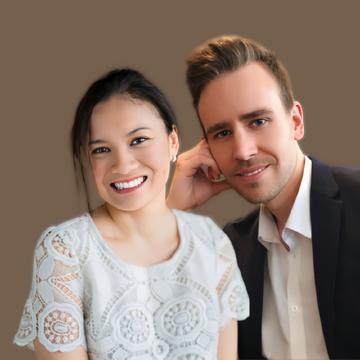
James WL Strong is the Chief Scientific Officer of Oxcura Ltd. Oxcura Ltd is an early-stage biotechnological, consultancy and health education start-up. metaFLam is one of Oxcura’s projects which focuses on the development of pharmacological treatments for post-infectious syndrome. Post-infectious syndrome includes Long COVID (post-COVID syndrome) and Myalgic Encephalomyelitis/Chronic Fatigue Syndrome (ME). Just about under 1.8 million of the UK population suffered from Long COVID in July 2022, with 25-30% (450,000-540,000 of the UK population) developing ME (persistent symptoms of 3 months in adults, unexplained by other conditions). ME affects 1% of the UK population with an annual health cost of £4.16 billion per year in the UK. ME is a debilitating disease signified by post-exertional symptom exacerbation following a minor cognitive or physical activity. Symptoms include profound fatigue, sleep disturbances, neurological, heart and gastrointestinal symptoms. 25% of ME patients are housebound or bedridden.
What is your background? What made you decide to get involved in supporting entrepreneurs?
My background is in metabolomics and medical statistics, and I have special interest in molecular cell biology. I am also currently working with Professor Karl Morten since 2016 on ME and metabolomics. Since 2018, I have started my part-time MSc in Evidence Based Healthcare, specialising in medical statistics. My interest in entrepreneurship is born out of the desire to bring research out of the laboratory into the market so ME patients can get a viable disease modifying treatment, so that they can get on with their lives.
What is your definition of entrepreneurship?
I believe entrepreneurship is the use of creative and innovative means to solve real life problems.
How and when did you know your idea was good enough to develop it?
I believe in the importance of research. However, while publishing scientific papers and presenting at conferences are important, we need to reflect on the significant barriers of getting the research that we do make a real impact in the very people we are trying to help. There are many high-quality ME research out there but we need to give these research findings the gravitas they deserve, that is through replication of the studies, confirming molecular targets, and not let them rot in scientific papers due to the lack of interest or funding. At the end of the day, patients suffer.
What would you say are the top 3 skills that needed to be a successful entrepreneur? Why?
I am a scientist by training. A biotechnological start-up is a long-haul project, and it requires a different skillset to my day-to-day job. Firstly, anyone interested in entrepreneurship must enjoy learning new things, and learning does not happen by reading or attending workshops, but by doing. Secondly, tenacity is key. In an area like ME where there is a lack of funding overall, and to a certain extent, a lack of interest – you must not waver despite how difficult or impossible things are. Finally, one must always see opportunities in problems.
What is your favourite part of being an entrepreneur?
Being able to turn ideas into real products that could help people.
What individual, company or organization inspires you most? Why?
Dr Hannah Nazri, my co-founder, because she is a multi-talented, multi-tasker who does not give up easily in many areas of her life. She is tenacious, driven, ambitious, and, overall, an incredible individual.
What has been your most satisfying or successful moment in business?
We are an early-stage start-up. This is my first foray into business.
If a new entrepreneur or startup came to you looking for entrepreneurship resources, where would you send them?
Said Business School, the Oxford University Innovation, and EnSpire Oxford would be good starting point.